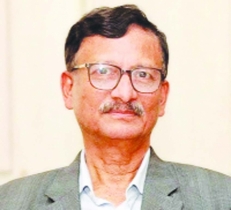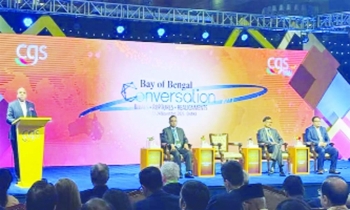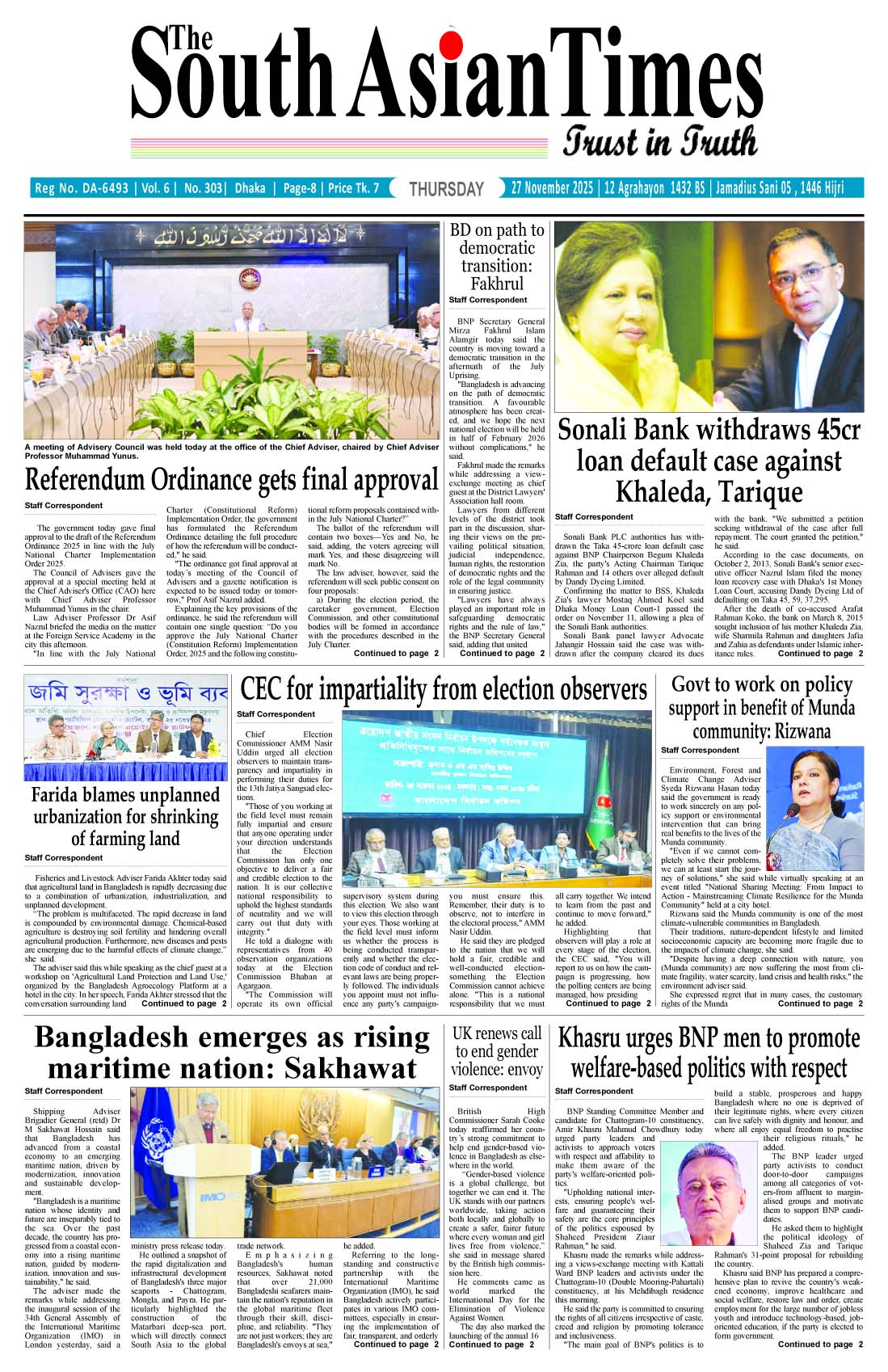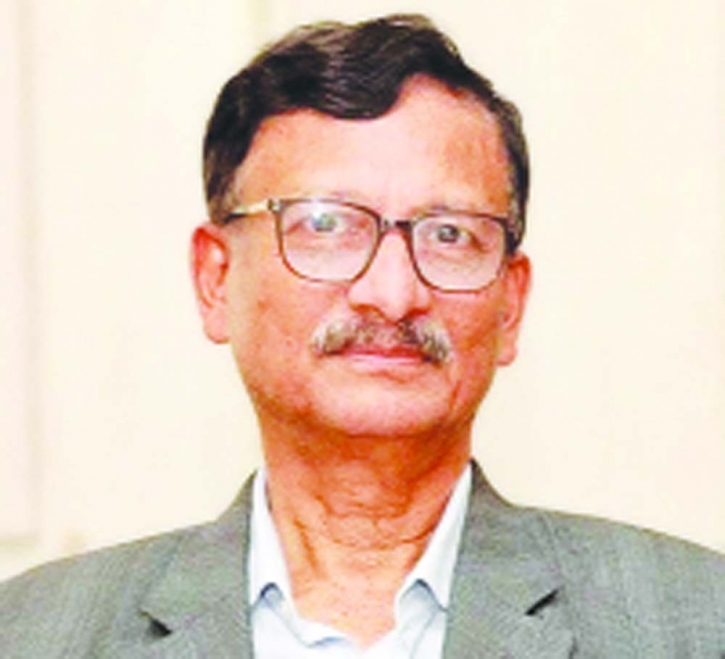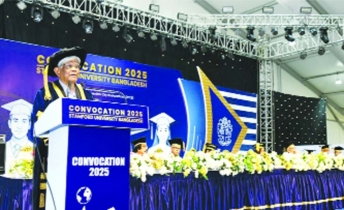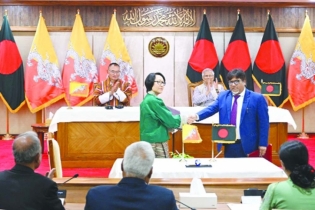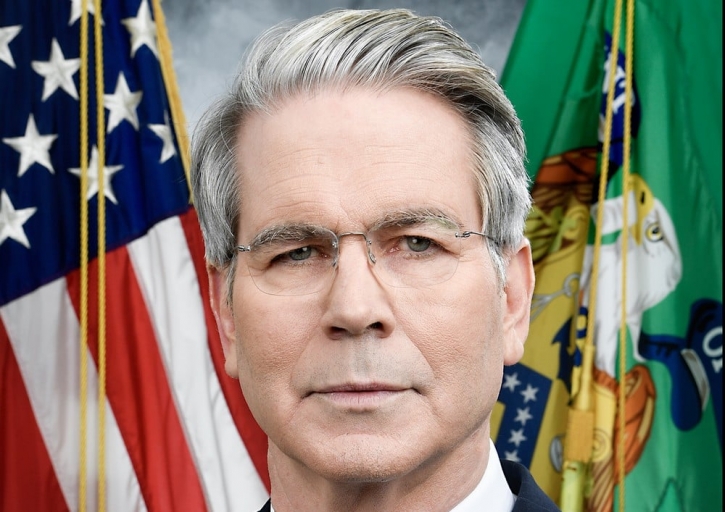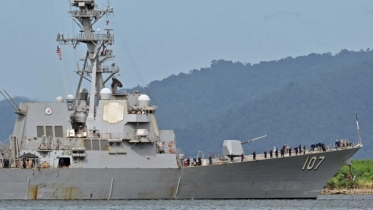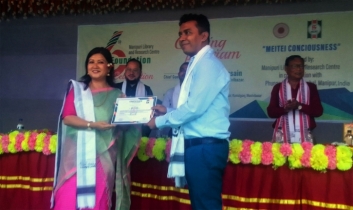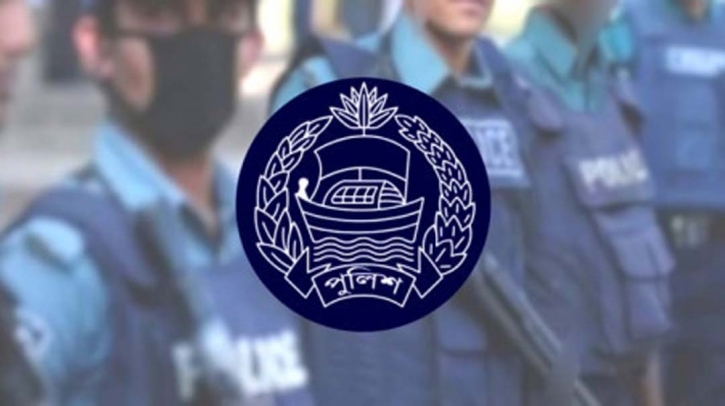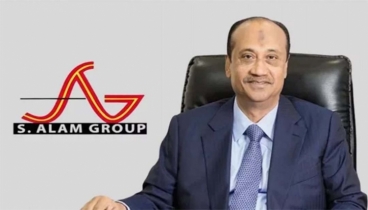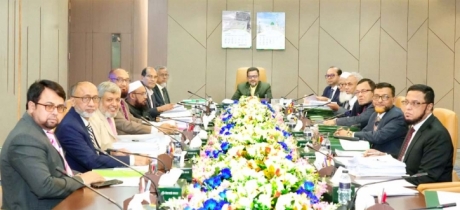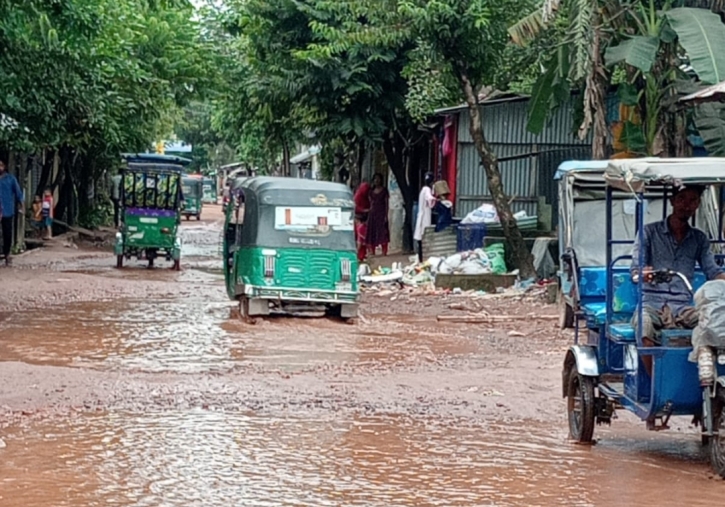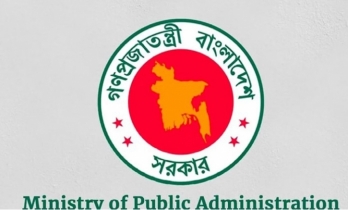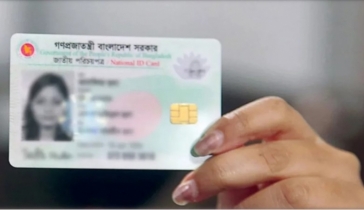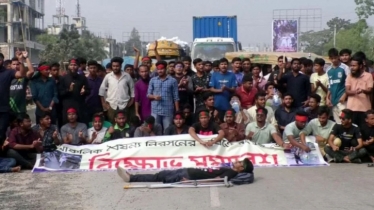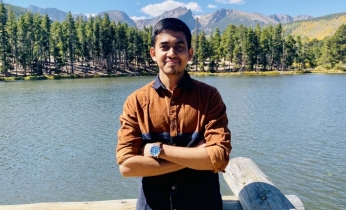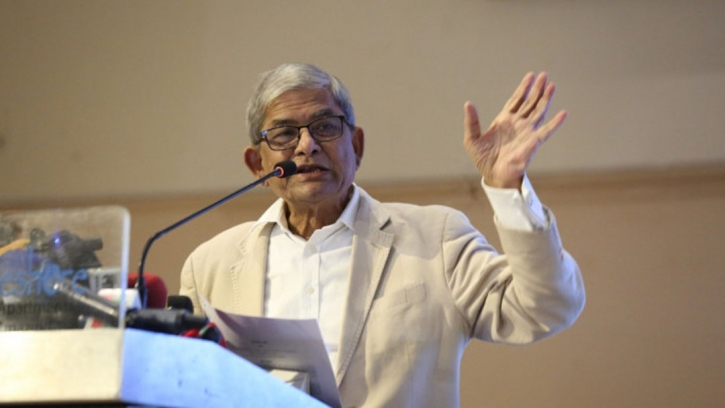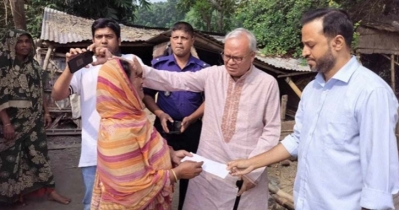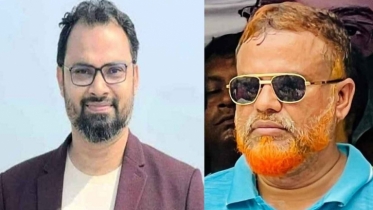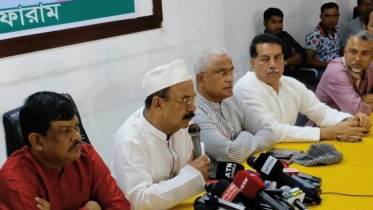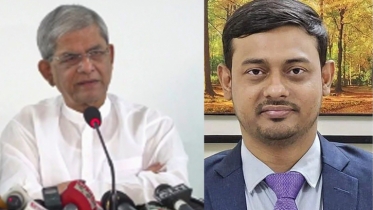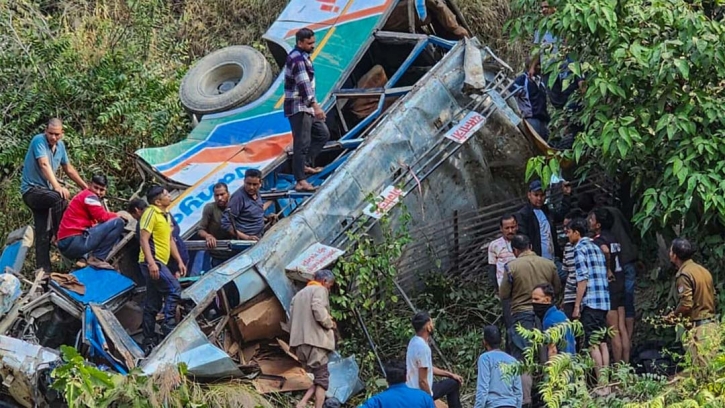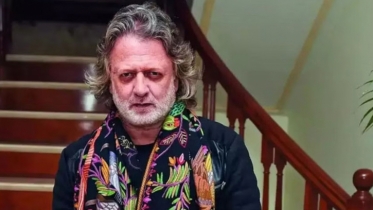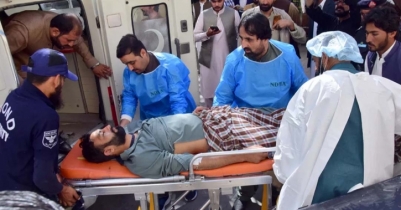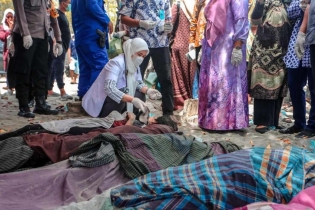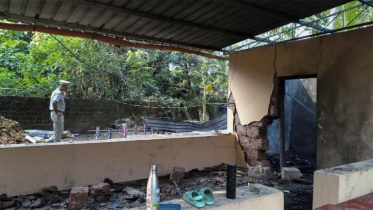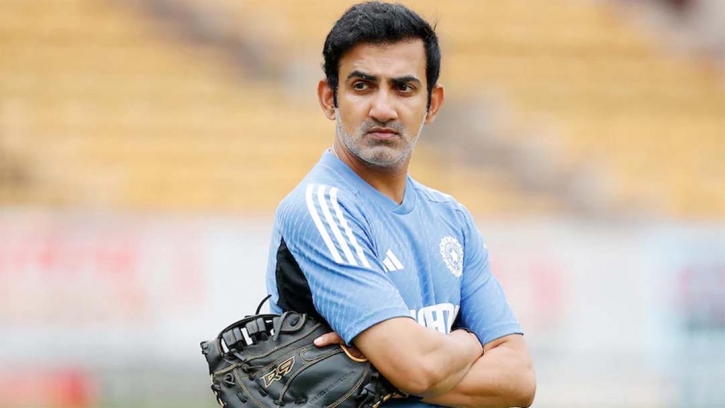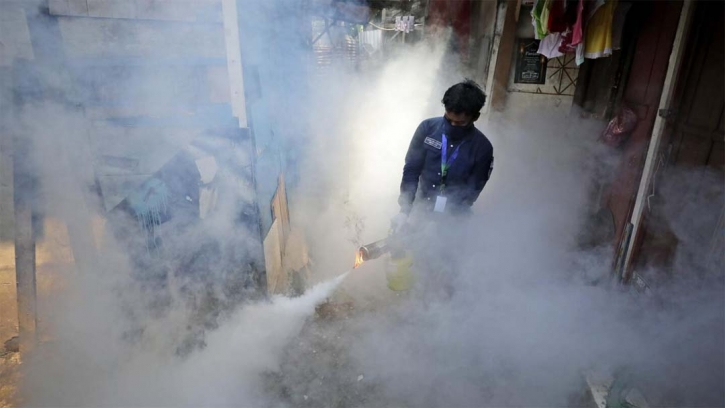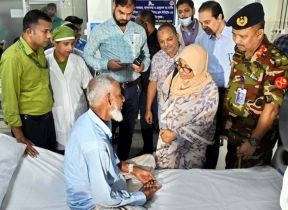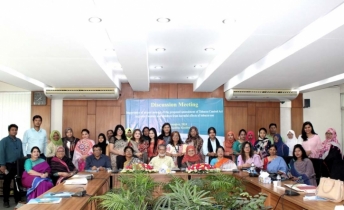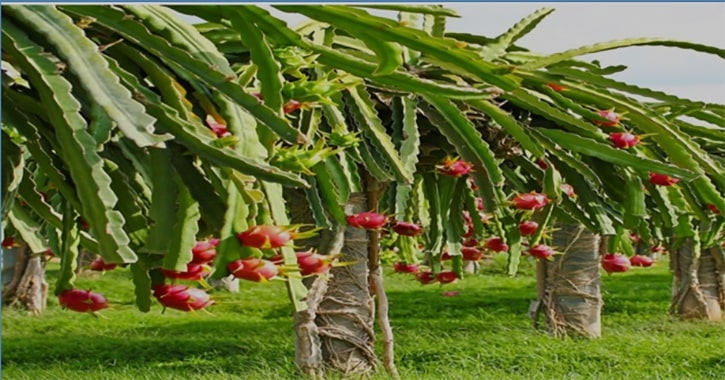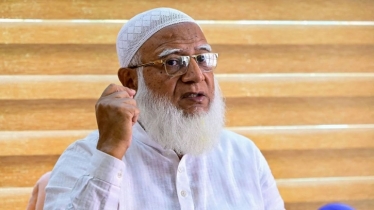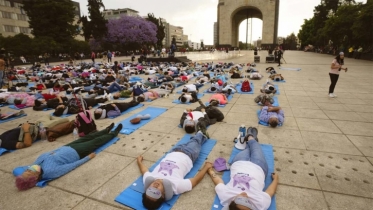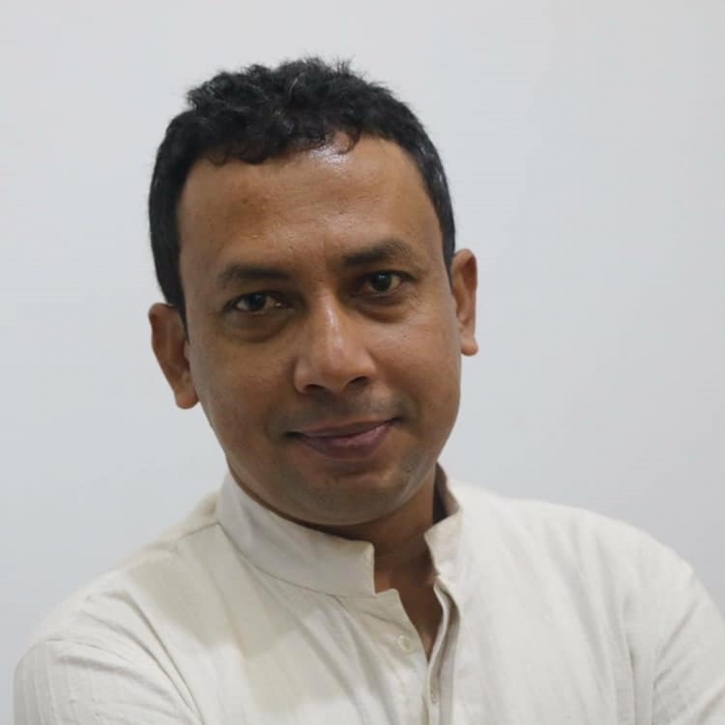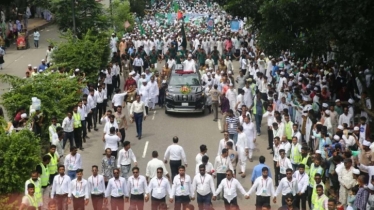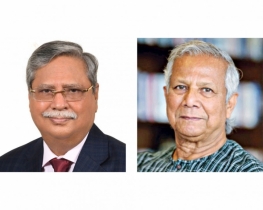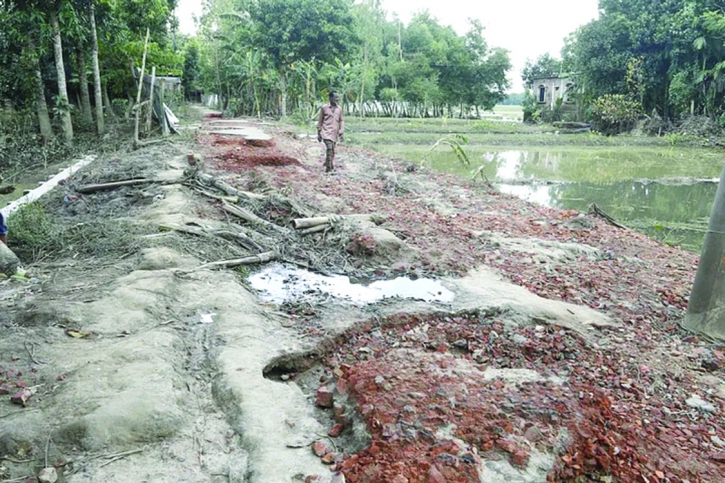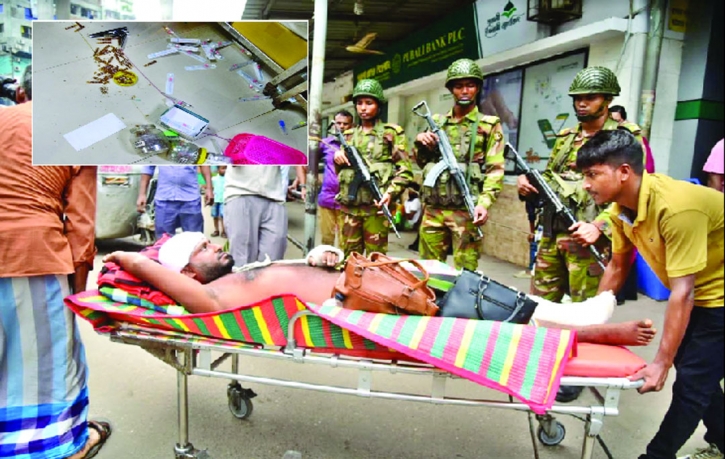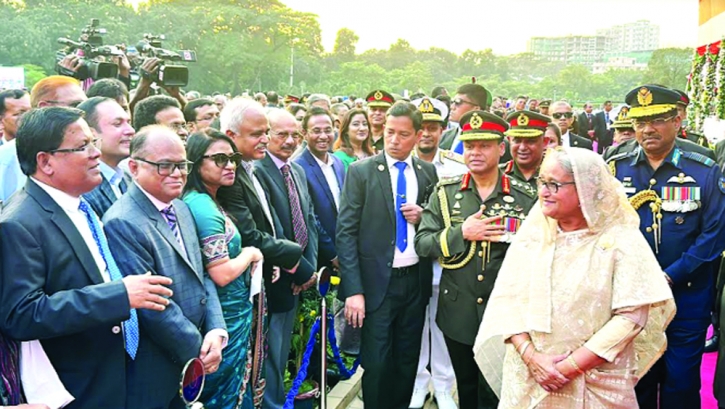Staff Correspondent
Chief Justice Syed Refaat Ahmed today said the July Revolution did not propose to overturn the constitution; rather, it sought to "purify our engagement with it" by reinstating transparency, accountability and responsiveness at the heart of public life.
Speaking at the Bay of Bengal Conversation 2025, at Hotel Sonargaon here, he said the civic awakening of July 2024 compelled Bangladesh to "revisit the very grammar of its constitutional life," reminding every organ of the State that the rule of law is not a bureaucratic ritual but "the moral architecture that secures legitimacy."
Organized by the Centre for Governance Studies, the event was presided over by its president Zillur Rahman. Foreign Affairs Adviser Md Touhid Hossain and Centre for Governance Studies Executive Director Parvez Karim Abbasi also addressed the function.
The Chief Justice said the Judiciary, as the only fully functional constitutional organ during the transitional months, was required to be "humble in its limits yet resolute in ensuring no right is rendered illusory, no institution made captive, and no citizen abandoned."
Referring to the Reform Roadmap unveiled in September 2024, he said the Supreme Court has already taken key steps toward institutional renewal, including operationalising-for the first time in Bangladesh`s history-a judicial appointment collegium aimed at transparent and consultative appointments.
He said the nationwide judicial roadshows held after unveiling the Reform Roadmap revealed "a judiciary eager to reclaim guardianship over its institutional destiny" and a legal community rediscovering its civic vocation.
The Chief Justice highlighted the significance of the Masdar Hussain judgment in shaping modern judicial reform, noting that the past year`s structural initiatives were "constitutional correctives" intended to strengthen independence, discipline and balance within the judiciary.
He said the Court had overturned several "constitutional misadventures" in the past year, including attempts to bury the Supreme Judicial Council and distortions arising from the 15th Amendment and the 13th Amendment Review.
Warning that the continuity of reform is not guaranteed, he said future Supreme Court administrations may inherit a constitutional landscape vastly different from today`s transitional moment. "Despite its flaws and historical scars, the present Constitution remains the Judiciary`s only touchstone of legitimacy," he added.
Justice Syed Refaat Ahmed said the basic structure doctrine has guided the court through corrective rulings addressing executive excesses, legislative distortions and judicial overreach.
The Chief Justice further observed that judicial diplomacy-through engagements with the UK, EU, UNDP, GIZ, UNICEF, Brazil, Egypt, Nepal and South Africa-has become an essential tool for institutional learning at a time when global and regional orders are being reshaped by crises, shifting alliances and climate insecurity.
He said the global order itself is being reshaped with "a velocity and unpredictability rarely witnessed in recent decades," marked by shifting alliances, multiplying crises and the weaponisation of knowledge in an age of deepfakes and AI-driven disinformation.
He warned that rising seas and intensifying climate insecurity in the Bay of Bengal could redraw borders and displace millions, reshaping regional security doctrines.
"As Bangladesh prepares for a reimagined political future, perhaps even a reauthored constitutional compact, the Judiciary must remain anchored in principle while alert to shifting realities," he further said.


